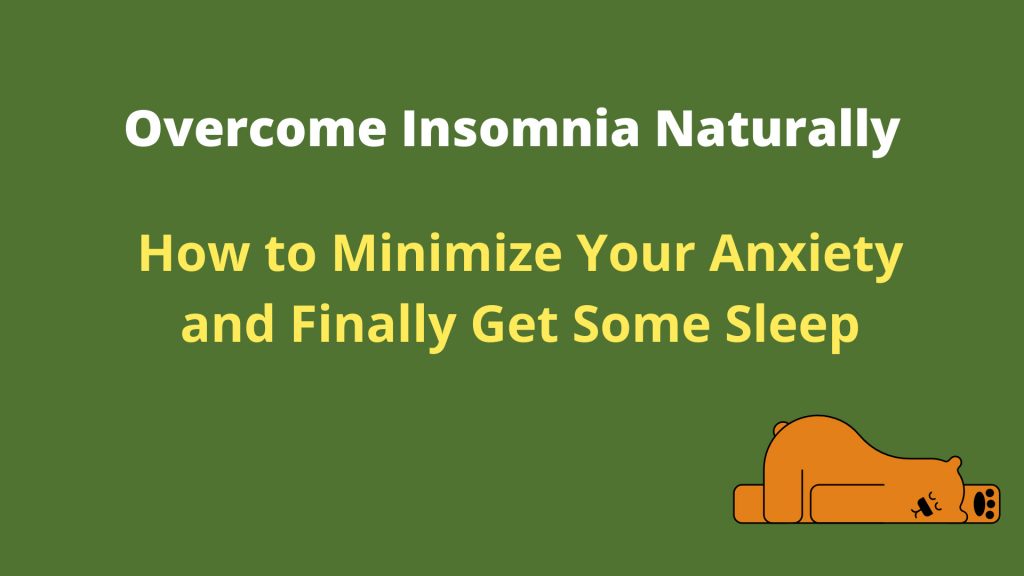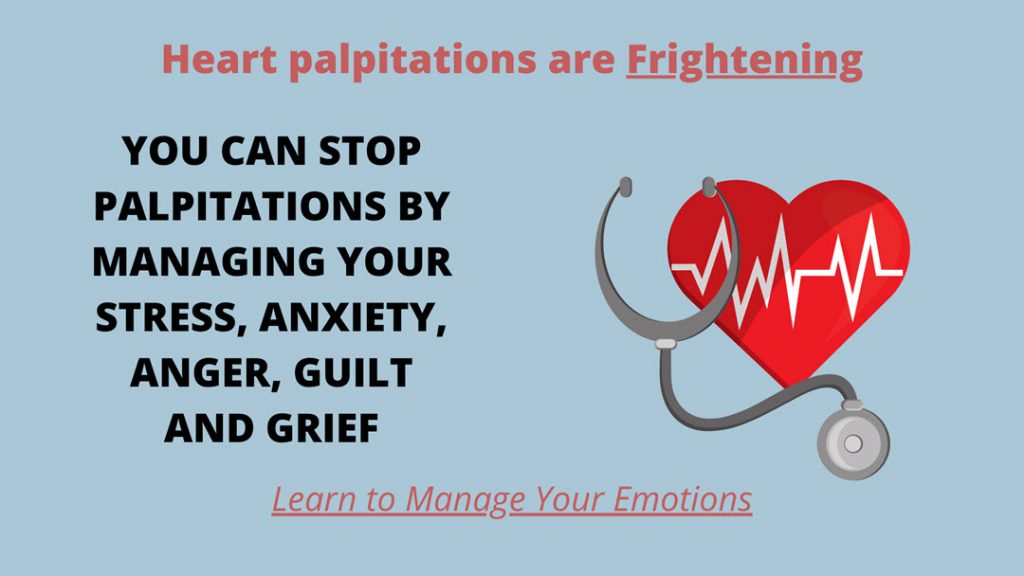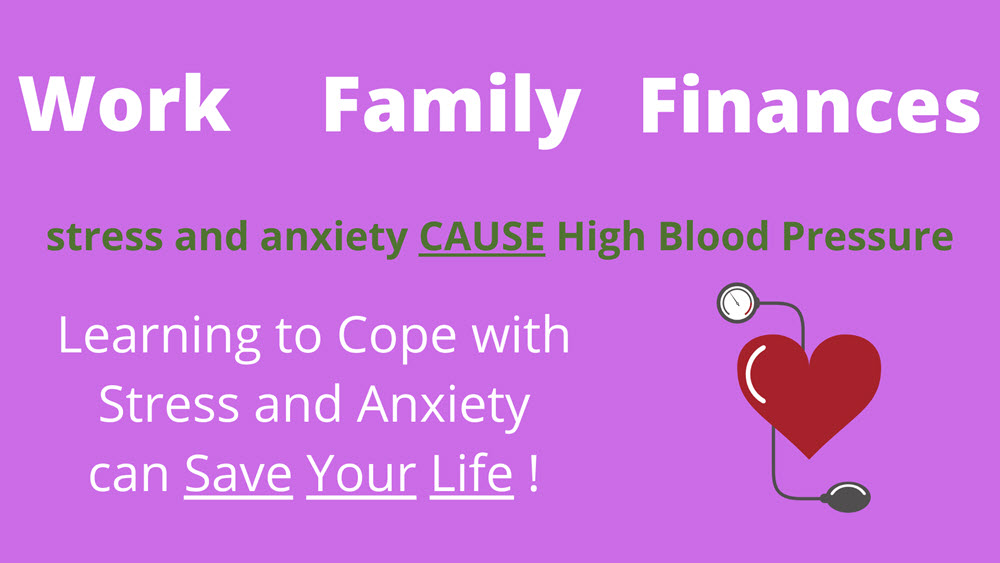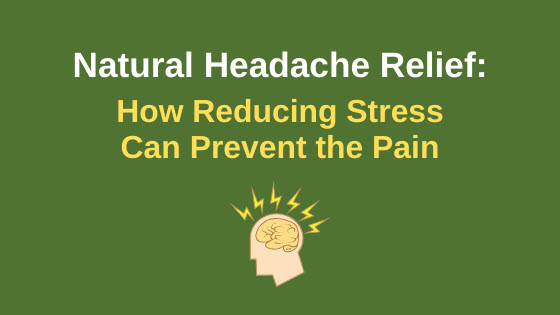Holistic Anxiety Treatment in New Canaan, CT
Understanding Dr. Gruber's Holistic Approach to Treating Anxiety: Personalized Care for Lasting Well-Being
In today’s fast-paced world, anxiety is an increasingly common concern that affects millions of people across all ages and walks of life. From feelings of nervousness and restlessness to more chronic conditions like generalized anxiety disorder (GAD), anxiety can manifest in a range of symptoms that often disrupt a person's quality of life. At Dr. Gruber’s practice, treating anxiety is approached with the utmost care and a deep commitment to individualized, holistic healing. Dr. Gruber believes that true wellness goes beyond symptom management; it requires addressing the root causes of anxiety and providing personalized solutions that nurture long-term emotional, physical, and mental well-being.
A Comprehensive, Personalized Care Approach
One of the key elements of Dr. Gruber’s philosophy in treating anxiety is his commitment to personalized care. Every individual experiences anxiety differently, whether it stems from external stressors, unresolved trauma, or even biochemical imbalances. Because of this, Dr. Gruber prioritizes an in-depth understanding of each patient's unique situation. He begins with a thorough consultation, gathering insights about not only the patient's anxiety symptoms but also their lifestyle, medical history, emotional well-being, and daily routines.
This holistic evaluation helps identify the contributing factors to the patient's anxiety, be it chronic stress, sleep disturbances, nutritional deficiencies, or unresolved emotional patterns. Dr. Gruber’s approach integrates traditional diagnostic tools with a deeper look at the individual’s mental, emotional, and physical health. By recognizing the interconnectedness of these areas, Dr. Gruber can tailor his treatments specifically to the patient, avoiding a one-size-fits-all approach to healing.
Natural Therapies for Anxiety Relief
Dr. Gruber offers a variety of natural, evidence-based therapies that address anxiety in a gentle yet effective manner. Many patients come to him seeking alternatives to conventional medication or looking for complementary treatments that enhance their overall wellness. Dr. Gruber is particularly skilled in integrating the following holistic therapies into his treatment plans for anxiety:
1. Herbal Medicine and Supplements
Dr. Gruber frequently incorporates natural supplements and herbal remedies into his anxiety treatment protocols. Depending on the patient’s unique needs, he may recommend adaptogenic herbs like ashwagandha or Rhodiola to help balance stress hormones, or calming herbs like lavender, passionflower, and valerian root to ease nervous tension and promote relaxation. Certain nutritional supplements like magnesium, omega-3 fatty acids, and B vitamins are also utilized to support brain health and improve mood regulation.
2. Mind-Body Techniques
Techniques like mindfulness, deep-breathing exercises, and progressive muscle relaxation are often integrated into Dr. Gruber’s anxiety treatment plans. These practices help the patient reconnect with their body, reduce stress, and foster a sense of calm. Mindfulness, in particular, teaches patients how to remain present, gently acknowledging anxious thoughts without letting them overwhelm the mind. These practices empower individuals to manage their anxiety in a proactive, conscious way.
3. Nutritional Counseling
Dr. Gruber is a firm believer in the healing power of food. Nutritional imbalances, such as low levels of essential fatty acids, B vitamins, or amino acids, can play a significant role in anxiety symptoms. By offering personalized nutritional counseling, Dr. Gruber helps patients create diets that support brain health and emotional balance. He works with patients to identify foods that may contribute to inflammation or exacerbate anxiety and helps them incorporate nutrient-rich, mood-boosting foods into their daily meals.
 Addressing Root Causes of Anxiety
Addressing Root Causes of Anxiety
While symptom relief is important, Dr. Gruber is dedicated to uncovering and addressing the underlying causes of anxiety. Chronic stress, poor sleep hygiene, unresolved trauma, or even digestive imbalances can contribute to persistent anxiety. Through his holistic evaluation process, Dr. Gruber identifies these factors and incorporates targeted therapies to bring the body and mind back into balance.
For example, if chronic stress is contributing to a patient's anxiety, Dr. Gruber may guide them through lifestyle modifications, helping them to incorporate stress-management techniques like yoga, regular exercise, or time in nature. If poor sleep is an issue, he may introduce relaxation techniques, herbal remedies, or refer them to acupuncture sessions to improve sleep quality. For those struggling with the emotional residue of past traumas, Dr. Gruber may recommend mindfulness-based practices or heart-centered hypnotherapy.
A Patient-Centered Approach to Lasting Change
Dr. Gruber’s ultimate goal in treating anxiety is to empower his patients to regain control over their lives and build sustainable, healthy habits that promote long-term well-being. With his patient-centered approach, Dr. Gruber involves patients in every step of their healing process, ensuring that treatments align with their personal preferences, comfort levels, and lifestyle needs.
By fostering a collaborative relationship with his patients, Dr. Gruber ensures that anxiety management becomes a comprehensive, integrative journey rather than a short-term fix. Patients who follow his recommendations often report not only relief from anxiety symptoms but also a renewed sense of vitality, emotional resilience, and confidence in their ability to manage future stressors.
Conclusion
Dr. Gruber’s approach to treating anxiety is as compassionate as it is comprehensive. By prioritizing individualized care and offering natural, holistic therapies, he helps patients heal from within, guiding them toward lasting emotional and mental well-being. Whether through herbal medicine, mindfulness techniques, or nutritional counseling, Dr. Gruber's multifaceted approach addresses both the symptoms and root causes of anxiety, allowing his patients to achieve true, long-term wellness.
Heart Strengths Therapy For Emotional and Mental Health Issues
There’s no shortage of therapies available to individuals struggling with emotional and mental health issues.
Heart Strengths Therapy is a newer approach that has helped countless people overcome their obstacles and build healthier, happier lives. Developed by Dr. Gary Gruber, Heart Strengths Therapy (HST) is an exploration of the deep-rooted and deeply transformative power of the heart.
In a recent interview with Katie Augustyn of the Transformation Center of Westport, Dr. Gruber discussed how he developed HST and its significance in health and vitality:
https://youtu.be/kSFlySP_Bc0
Drawing on his decades of experience as a doctor and psychotherapist, Dr Gruber established the Heart Strengths Therapy Center in Connecticut, where he has been helping clients for over twenty years.
Heart Strengths Therapy is an integrative approach to therapy, connecting inner skills, emotional healing, and personal growth to help people achieve physical, mental, and spiritual health.
At the core of Heart Strengths Therapy is the belief that our hearts hold immense power and that unlocking this power can help us fully transform our lives. According to Dr Gruber, “a well-functioning heart provides us access to our capacity to learn, our self-discipline and strength, our capacity to trust and to find peace within ourselves and our environment.”
Heart Strengths Therapy works by focusing on unlocking this potential and building the tools to learn to trust and gain strength through self-acceptance. Core components of HST include learning to listen and understand your emotions, deepening the connection with oneself, understanding the power of forgiveness, and acknowledging and exploring your role in relationships.
At various points during the therapy process, the participant identifies aspects that may not be serving them, exploring the feelings associated with those aspects, and finally finding healthier ways to integrate them into their core being. HST encourages self-reflection and self-exploration, helping patients define their core values and identify positive aspects of themselves to build on in the future.
Ultimately, the goal of Heart Strengths Therapy is to provide the tools and support needed to foster lasting and meaningful changes in your life.
Through reflection on yourself and your inner strengths, HST encourages the search for greater clarity and purpose. By deepening awareness, understanding emotions, authentic relating, and engaging in self-care practices, those working with Dr Gruber are able to come to terms with and heal from traumatic experiences, embrace their purpose, and transform their lives.
If you, a friend, or a loved one is searching for a path to lasting psychological and emotional change, consider Heart Strengths Therapy. With Dr Gruber’s guidance and support, you can unlock your power to truly understand yourself and live a more healthy, complete and proactive life.
Transcending Levels of Consciousness
In the world of health and wellness, there is a great deal of discussion surrounding the idea of transcending levels of consciousness.
This concept has been explored by numerous authors and experts, and one of the most renowned is Dr. David R. Hawkins, an American psychiatrist and author, who is widely known for his work on the subject.
The idea of transcending levels of consciousness is based on the notion that, by understanding and utilizing particular emotional states, one can rise up to higher levels of consciousness. According to Hawkins, the key to achieving this is to learn to distinguish between emergency emotions and welfare emotions.
Emergency Emotions vs Welfare Emotions
Emergency emotions are those that arise from fear and other negative feelings. These emotions induce a state of fight-or-flight, where one feels compelled to respond to a perceived threat, even if it is not real.
- Examples of emergency emotions include anger, hatred, and shame.
Welfare emotions are those that are associated with love and other positive feelings. These emotions, while not necessarily indicating that everything is perfect, do create a sense of trust and safety.
- Examples of welfare emotions include joy, compassion, and security.
The idea behind transcending levels of consciousness is that, by understanding and recognizing the difference between emergency and welfare emotions, one can begin to distinguish between real and perceived threats. This allows one to rise above fear and anxiety and reach a state of higher consciousness.
How do you reach a higher state of consciousness?
In order to reach this state, it is important to be aware of both emergency and welfare emotions, and to learn to recognize them when they arise. Once this is done, it is then possible to begin to understand their source and the underlying cause. This can help one to avoid reacting to fear-based emotions and instead be mindful of the welfare emotions that are present.
Once one is able to recognize and distinguish between emergency and welfare emotions, it is then possible to take action in order to move towards a higher state of consciousness.
This can involve engaging in activities that promote relaxation and wellbeing, such as yoga, meditation, and mindfulness. It can also involve making lifestyle changes that promote physical and mental health, such as getting adequate sleep, eating a balanced diet, and exercising regularly.
By engaging in these activities, one can begin to transcend levels of consciousness and reach a state of greater harmony and balance. This can lead to greater self-awareness, improved mental health, and overall well-being.
Ultimately, transcending levels of consciousness is a process of self-exploration and understanding.
By learning to recognize and differentiate between emergency and welfare emotions, one can begin to move towards a higher level of consciousness and achieve greater wellbeing. This is the goal that Dr. David R. Hawkins sought to achieve, and one that many people can benefit from.
Heart-Centered Hypnotherapy: A Path to Inner Healing
When it comes to finding ways to heal and grow, many people are turning to heart-centered hypnotherapy.
This type of therapy is based on the belief that the unconscious mind is a powerful force that can be used to uncover and heal life patterns. Developed by renowned therapist Diane Zimberoff, heart-centered hypnotherapy is a cutting-edge healing modality that combines the power of hypnotherapy with the power of the heart.
The idea behind heart-centered hypnotherapy is that the unconscious mind stores all the memories and experiences you have had throughout our lives. It is the source of your thoughts, feelings, and behaviors.
By tapping into the unconscious mind, you can uncover the root causes of any issues or challenges tha tyou are facing. This often leads to healing and transformation as you are able to let go of outdated and unhelpful beliefs and behaviors.
The goal of heart-centered hypnotherapy is to guide you on a journey of self-discovery and inner healing.
It is a gentle and effective way to access the unconscious mind, allowing you to uncover the patterns and beliefs that are preventing you from leading a more fulfilling life. Through hypnotherapy, you can gain insight into your behavior and motivations, and learn how to make positive changes.
During heart-centered hypnotherapy sessions, you are guided into a deeply relaxed state of mind.
This allows you to tap into your unconscious mind and explore your inner world. Then you will identify and release any negative beliefs or patterns that are holding you back from achieving your goals. The process can be incredibly powerful and life-changing, as you learn to make healthier choices and create new habits.
The core of heart-centered hypnotherapy is the belief that the power of the heart is the source of transformation and healing.
Diane Zimberoff created this type of therapy with the intention of helping people access their own inner wisdom and find the courage to make positive changes in their lives. Heart-centered hypnotherapy is a powerful tool that can help people discover their true potential and create the life they have always dreamed of.
Heart-centered hypnotherapy is a safe and effective way to access the unconscious mind and uncover the root causes of any issues or challenges that you are facing.
It is a powerful tool for self-discovery and inner healing, and can help you make positive changes in your life. If you are looking for a way to heal and grow, heart-centered hypnotherapy is a great option to consider.
What is Transactional Analysis?
Transactional Analysis is a psychotherapy theory developed by psychiatrist Eric Berne in the 1950s.
This theory focuses on understanding the communication patterns between individuals and the roles they play in different situations. It is used to help people understand and improve their communication, relationships and overall emotional health.
Berne's Transactional Analysis theory identifies three distinct ego states in each individual: the Parent, the Adult, and the Child. Each ego state is associated with certain internal dialogue and behavior.
- The Parent ego state is the part of us that holds our values, beliefs, and opinions that we have learned from society, culture, and our parents.
- The Adult ego state is the part of us that uses logic and reason to make decisions and solve problems.
- The Child ego state is the part of us that holds our emotional responses and feelings.
The theory states that in any given situation, we may switch between these three ego states.
For example, we may respond to a situation in our Parent ego state by using authority, rules, and expectations that have been learned from our parents. We may respond in our Adult ego state by using logic and reasoning to evaluate the situation. And we may respond in our Child ego state by expressing our emotions and feelings.
By understanding how these three ego states interact, we can learn how to effectively communicate with others, build better relationships, and improve our overall emotional health.
We can better understand how our own emotions and behaviors affect our interactions with others and how we can better manage our emotions and reactions. This can help us to become better communicators and develop healthier relationships with those around us.
Positive Character Strengths
Positive character strengths are an important part of living a healthy and well-balanced life.
These strengths are the foundation for leading a life of purpose and joy. The VIA Institute on Character is dedicated to helping individuals identify, understand and use their own character strengths. This organization provides research, resources and assessments to help individuals develop and nurture their character strengths.
At the core of the VIA Institute on Character is the belief that “positive character is the cornerstone of well-being.” By identifying and utilizing positive character strengths, individuals can enhance their overall wellbeing and live a healthier, more fulfilling life.
The VIA Institute on Character has identified 24 character strengths that are divided into six broad categories.
These categories include courage, justice, humanity, temperance, wisdom, and transcendence. Each of these categories contains several specific characteristics that can be developed and cultivated to help individuals live a more balanced life.
For example, the courage category includes strength of bravery, perseverance, and integrity. By developing these strengths, individuals can become more courageous and confident in their decision making. Similarly, the temperance category includes strength of self-regulation, humility, and prudence. By utilizing these strengths, individuals can become more mindful and intentional with their actions.
The VIA Institute on Character has developed several assessments to help individuals identify their personal character strengths. These assessments are designed to provide an objective analysis of the individual’s character strengths and weaknesses.
By understanding their individual strengths and weaknesses, individuals can learn how to best utilize their strengths to improve their overall wellbeing.
One of the most popular assessments developed by the VIA Institute on Character is the VIA Survey of Character Strengths. This survey asks individuals to rate their agreement with a series of statements that measure their 24 character strengths. The results of this survey provide an objective measure of the individual’s character strengths and weaknesses.
CLICK HERE TO TAKE THE VIA SURVEY OF CHARACTER STRENGTHS
Positive character strengths are an essential part of living a healthy and well-balanced life. By utilizing the resources and assessments provided by the VIA Institute on Character, individuals can identify and nurture their positive character strengths. By doing so, individuals can enhance their overall wellbeing and lead a life of purpose and joy.
Heart palpitations can be scary: Learn how to prevent them through stress & anxiety management
What are heart palpitations and why are you getting them?
When heart palpitations start, it stops you in your tracks. It’s that feeling when your heart suddenly begins to race or flutter. It might feel like it’s skipping a beat or beating irregularly. You can’t ignore it, so you just wait it out. You feel uneasy, even concerned. Then it suddenly goes away, and you can go back to what you were doing.
Fortunately, when not caused by a serious underlying condition, heart palpitations are usually not dangerous. However, they are still unpleasant and scary.
Heart palpitations are usually brought on by stress, fear, or anxiety. When we get stressed out, our bodies go into fight or flight mode. Everyone experiences this differently, and for some people, this hyperactive state -even if mild - triggers heart palpitations. Although they are generally not a cause for alarm, it’s hard not worry when they happen, which only adds to the stress that likely caused them in the first place.
The first step to preventing heart palpitations is finding out why you’re experiencing them in the first place.
Causes of heart palpitations
Stress, fear, and anxiety are the most common cause of heart palpitations, but they can also be triggered by other physical conditions such as:
- Holding the breath
- Shallow, short breaths
- Low blood sugar
- Too much caffeine
- Low potassium levels
- Dehydration
- A fever
- Pregnancy
Certain medications cause the pulse to increase:
- Nicotine
- Alcohol
- Cocaine and amphetamines
- Diet pills, decongestants, and asthma inhalers
Heart palpitations are also associated with medical conditions including:
- Thyroid disease
- Anemia
- Heart disease
- Hypoglycemia
- Low blood pressure
Natural treatment of heart palpitations
The way you treat heart palpitations will depend on what is causing them. Making sure you’re eating enough food and staying hydrated is important for keeping your blood sugar and electrolyte levels where they should be.
If you’re unsure of why you’re getting heart palpitations, please contact our office for an appointment with Dr Gruber. He will be able to evaluate your condition and order appropriate testing for any underlying conditions that could be triggering them.
Stress relief is a natural solution for heart palpitations
If, like most people, your heart palpitations are being brought on by stress or anxiety, you’re going to need to learn to control these emotions in order to find relief. HeartMath tools (CLICK HERE for more information) such as the Neutral Tool are ways to calm yourself during an episode of palpitations as well as good daily practices to try to keep your anxiety at bay. Other natural ways to reduce stress include a healthy diet, regular exercise, getting enough sleep, and making time for activities that you find relaxing and pleasurable.
If you’re struggling to manage your stress by yourself, seeking help from a professional is a great option. Heart Strengths Therapy can help people like you learn take control of anxiety and live a better life.
The concerns that come with extreme and frequent stress go far beyond heart palpitations. Making sure you learn how to properly deal with it can improve your health and quality of life in several ways.
Learn to manage your stress and stop heart palpitations with Dr. Gary Gruber
Dr. Gary Gruber is a licensed naturopathic practitioner and holistic health counselor. He owns Family and Environmental Medicine where he specializes in helping his patients find natural solutions for health conditions related to stress and anxiety causing heart palpitations.
If you’re experiencing heart palpitations and want to avoid them by learning to cope with stress in a healthier way, contact Dr. Gary Gruber.
Family and Environmental Medicine is in the heart of Fairfield County, Connecticut near Downtown Canaan. His office is only 10 minutes from Stamford and Darien, 20 minutes from Greenwich, and an hour from NYC by train.
If you have high blood pressure, learning to better cope with stress & anxiety could save your life
Stress Management lowers High Blood Pressure
There’s a reason why checking a patient’s blood pressure is always one of the first things done by a nurse or doctor. High blood pressure affects close to a third of the American population, and it doesn’t show any symptoms.
It also comes with a lot of serious health risks. High blood pressure is when your blood is putting too much force on the walls of your blood vessels, which causes damage over time. This damage makes it hard for blood to get to important organs which can eventually lead to serious complications such as kidney disease, heart disease, or a stroke or heart attack.
Stress and Anxiety cause High Blood Pressure
The connection between chronic high blood pressure also called hypertension, and stress and anxiety is still being researched. What we do know is when we get stressed out, our body releases cortisol and adrenaline into our blood stream. These “fight or flight” hormones cause our heart to beat faster and our blood vessels to get smaller, which in turn causes a temporary spike in blood pressure. This puts us in somewhat of a hyperactive state, which would be effective if either fighting or fleeing could solve all our problems.
But in today’s world that’s not usually the case. Our problems are generally less dangerous and more frequent than they were thousands of years ago. For people who get stressed out easily, the extra strain regularly put on their blood vessels can cause damage over time.
For people who already have hypertension, stress can only make the risks greater. With the damage that high blood pressure is already causing on your blood vessels and organs, keeping your stress under control is very important.
Other Causes of High Blood Pressure
Although stress causes blood pressure to increase temporarily, which is dangerous for people who already have hypertension, anxiety is not known to cause chronic high blood pressure by itself. However, a lot of behaviors people use to cope with stress puts them at a higher risk.
Smoking, drinking alcohol, and an unhealthy diet are all ways that people commonly deal with stress. These behaviors can also all lead to chronic high blood pressure. Fortunately, if these behaviors are stopped, a person’s blood pressure can go back to a healthy level.
Natural treatments for High Blood Pressure
Ways to lower your blood pressure at home include:
- Regular exercise
- Not smoking
- Avoiding alcohol
- A healthy diet
- Eating less salt
Learning to manage stress is also important for keeping your blood pressure under control. When you’re stress-free, unnecessary blood pressure spikes can be avoided, and maintaining a healthy lifestyle becomes easier. Effectively managing stress always leads to a healthier body. A natural solution to treat high blood pressure is Heart Strengths Therapy.
Lower your stress and your blood pressure with Dr. Gary Gruber
Dr. Gary Gruber is a licensed naturopathic practitioner and holistic health counselor. He owns Family and Environmental Medicine where he specializes in helping his patients find natural solutions for high blood pressure that is the result of stress and anxiety.
If you have high blood pressure and need help learning to cope with stress and anxiety in a healthier way, contact Dr. Gary Gruber.
The office of Family and Environmental Medicine is in New Canaan, Connecticut, within walking distance from the New Canaan train station. In the center of Fairfield County his office is only 10 minutes from Stamford and Darien, 20 minutes from Ridgefield, Greenwich, and Westport. An easy ride on the New Haven MetroNorth railroad hour from New York City.
Overcome insomnia naturally | How to minimize your anxiety and finally get some sleep
The relationship between anxiety and insomnia
Not being able to sleep when you know your body is exhausted is an awful feeling. It’s something that most people have experienced at least once, but for some people this happens far too often. One of the major causes of insomnia is anxiety, and the relationship between anxiety and insomnia can be a brutal cycle.
Insomnia/Anxiety Cycle
Anxiety makes it impossible to fall asleep and stay asleep, but sleep deprivation makes anxiety worse. It’s upsetting, it’s stressful, and on top of it all, you’re absolutely exhausted all the time. Not to mention, long term sleep deprivation puts you at a higher risk for many health conditions including high blood pressure, diabetes, and heart disease. It weakens your immune system, decreases your daily performance and ability to think and function effectively, and makes you far more likely to get into an accident if you drive a car.
Anxiety is the feeling of worry, fear, or apprehension in response to stressful or unknown circumstances in our lives. Anxiety can be short-term and brought on by a specific situation. However, if your anxiety lasts longer than six months or is so severe that it’s making it hard for you to function properly in your everyday life, it’s likely that you have an anxiety disorder. Whether your anxiety is temporary or chronic, it often leads to insomnia.

Symptoms of Insomnia
According to the Mayo Clinic, common symptoms of insomnia include:
- Trouble falling asleep
- Inability to stay asleep or sleep through the night
- Waking up too early
- Waking up not feeling rested
- Feeling tired throughout the day
Causes of insomnia
The most common causes of difficulty falling asleep or staying asleep are anxiety, stress, and depression. Other causes include an unhealthy diet or lifestyle, bad sleep habits, or pain.
Natural insomnia relief
For most people, the best way to get insomnia under control is to learn how to manage their anxiety and stress. Healthy habits such as daily exercise, a proper diet, and practicing mindfulness can all help with anxiety and insomnia. Good sleep habits like doing a calming activity before bed, keeping a regular schedule, and limiting substances like alcohol, nicotine, and caffeine can all help with insomnia and anxiety as well. If you are struggling with insomnia and it’s negatively affecting your daily life, you should consider speaking with a holistic counselor.
Natural insomnia relief with Dr. Gary Gruber
If you’re struggling with insomnia and need help getting your control over your sleep and your life, contact Dr. Gary Gruber.
Dr. Gary Gruber is a licensed naturopathic practitioner and holistic health counselor. He owns Family and Environmental Medicine where he specializes in helping his patients find natural solutions for insomnia caused by stress and anxiety. Family and Environmental Medicine is in the heart of Fairfield County, Connecticut near downtown New Canaan CT. His office is only 10 minutes from Stamford CT and Darien CT, 20 minutes from Greenwich CT, and less than an hour from New York City by train.
Natural Headache Relief | How Stress & Anxiety Can Cause the Pain
On a stressful day at work, do you find yourself popping aspirin to numb your headache? If you suffer from tension headaches, you may have noticed that your headaches are caused by stress.
Next time you have a headache, don't run straight for the medicine cabinet: reducing your stress may provide natural headache relief, eliminating the need for over-the-counter pills.
Read on to discover more about tension headaches and their causes. In the meantime, you can also check out this link for more information about reducing the amount of stress in your life!
Do I Have a Tension Headache?
Tension or stress headaches are just one type of headache you can get -- and only one of the myriad of ways your body reacts to stress. Here's how to tell if you have a tension headache, versus another type of headache due to another cause.
The symptoms of tension headaches are unique from other types of headaches. If you have a tension headache, you may feel a dull ache, tightness or pressure around your forehead. Many people liken it to the feeling of a rubber band being wrapped around your head. According to Mayo Clinic, tension headaches may be episodic or chronic, meaning they may come and go or persist for long periods of time.
Another type of headache you may get, which can be triggered by stress or other causes, is a migraine headache. The pain of migraine headaches can be described as throbbing or pulsing and may lead to other symptoms such as nausea or weakness. If you have a migraine with aura, you may also experience changes in your field of vision. Migraine headaches can be more serious than tension headaches and may require medical attention.
Causes of Tension Headaches
Tension headache occurs due to contractions of the muscles in and around the head, resulting in the feeling that a rubber band is being tightened around your forehead. Cold temperatures and staring at a computer screen may trigger tension headaches in some people. However, for most patients, a major cause of tension headaches is stress, whether at work, at home, at school or due to another area of life altogether.
Preventing Tension Headaches Naturally
Natural treatments for tension headaches can prevent the onset of headaches and reduce their intensity when they do occur. If you suffer from frequent tension headaches (defined as more than once or twice per week), you may want to try biofeedback, a type of electromagnetic therapy that can be helpful for tension headaches.
Natural Treatment for Headaches - Stress Management by Dr. Gary Gruber
Dr. Gary Gruber specializes in a type of biofeedback known as HeartMath therapy, which states that our heart rhythms reflect our inner state -- including our levels of stress. Using principles of psychology and naturopathic medicine, Dr Gruber can help you regulate your heart rate, calm stress in the body and thereby reduce tension headaches.
If you are struggling to find a solution to your health issues, contact Dr Gary Gruber.
Family and Environmental Medicine is located in the heart of Fairfield County Connecticut near Downtown New Canaan
- NYC – 35 Miles
- Westchester County – 10-30 minutes
- Greenwich – 10 minutes
- Stamford
- Norwalk – 10 minutes
- Westport – 10-15 minutes
















